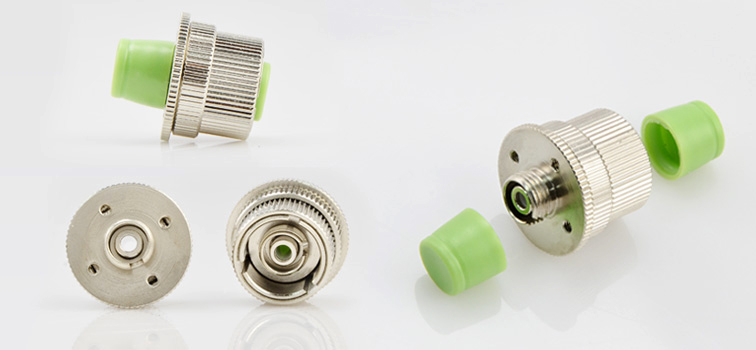Fiber optic attenuators are devices that precisely decrease the optical power in fiber links by a fixed or adjustable amount. They can not only control the power level of optical signals, but also are used to test the linearity and dynamic range of photo sensors and photo detectors. Fiber optic attenuator has a number of different forms and is typically divided into fixed or variable attenuators. What’s more, they can be classified as LC, SC, ST, FC, MU, E2000 etc. according to the different types of connectors. This article will make a brief introduction of fiber attenuator to help you better understand it.

Why We Need Fiber Optic Attenuator?
As is known to all, the optical power at the receiver ultimately decides the ability of any fiber optic system to transmit data. But it isn’t the fact that the bigger signal power level is better. The truth is that either too little or too much power will cause high bit error rates. Too much power can make the receiver amplifier saturates, while too little will cause noise problems as it interferes with the signal.
Typically, the receiver power depends on two basic factors: the power launched into the fiber and the lost power by attenuation in the optical fiber cable plant. When the power is too high, fiber optic attenuator can help by reducing receive power for better performance. Generally, multimode systems do not need optical attenuators because they barely have enough power output to saturate receivers. While single mode systems, especially for short links, desperately need attenuation because they often have too much power. But nowadays, the complexity of telecommunications requires attenuation both in single mode and multimode systems.
Operating Principles of Fiber Optic Attenuator
There are many methods of power attenuation, including absorption, reflection, diffusion, scattering, deflection, diffraction, and dispersion, etc. Optical attenuators usually operate by absorbing the light, like a neutral density thin film filter. Or they work by scattering the light such as an air gap. Another type of attenuators uses the length of high-loss optical fiber, that operates upon its input optical signal power level in such a way that its output signal power level is less than the input level.
Fixed Fiber Optic Attenuators VS Variable Optical Attenuators
Fiber optic attenuators can be divided into two categories: fixed optical attenuator and variable attenuator. Both of them have unique characteristics.
Fixed optical attenuators are compact adapter styles that can reduce signals by a specific amount. As the signal approaches a device or node in a communication link, the power is reduced to a level that is suitable for its application. They can make signal reflection less of an issue and therefore make for more accurate transmissions of data. Fixed attenuators are available with single mode, multimode and polarization maintaining fiber. And they are ideal for attenuating single mode fiber connectors in various application, such as LAN (Local Area Network), CATV (Community Access Television) and telecommunication networks.

Variable fiber optic attenuators are rugged, hand-held devices that are used for testing and measurement, or equalizing the power between different signals. They can offer a range of attenuation values with flexible adjustment. Because variable attenuators work by directly blocking the beam, they are polarization insensitive. Like fixed attenuators, variable optic attenuators are also offered with single mode, multimode, or polarization maintaining fibers.

Conclusion
Fiber optical attenuators are key components in optical telecommunication systems. They can adjust optical signal levels to increase network flexibility and providing management of optical power. Besides fixed fiber optical atternuators and variable attenuators, there are many other types atternuators, such as loopback attenuators, built-in variable attenuators and so on.
Related Article:
Guideline for Fixed Fiber Attenuator
